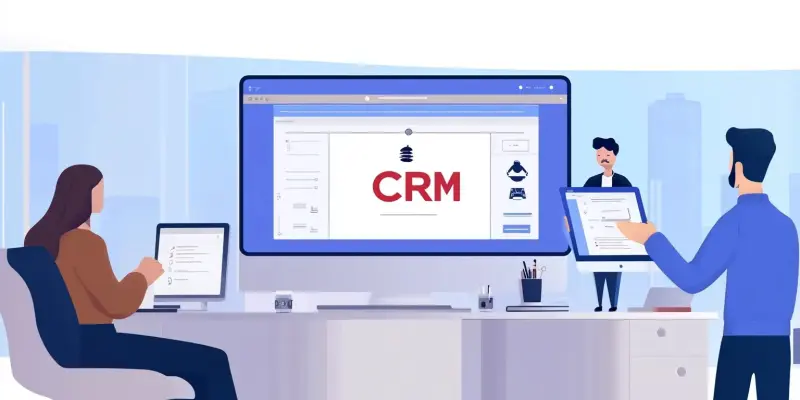In today’s challenging environment, charities face rising costs and increasing service demands while grappling with limited resources. To navigate these hurdles, many organizations are turning to Customer Relationship Management (CRM) platforms. Modern CRMs are revolutionizing how charities manage and engage with their supporters, providing deeper insights into behaviors and preferences, and ultimately helping to raise more funds. This article explores how charities can maximize the potential of CRMs to optimize support and fundraising efforts.
Flexibility, Customizability, and Scalability
Charities need CRM platforms that are flexible, customizable, and scalable. These features ensure that the CRM can grow alongside the organization and adapt to its evolving needs. A flexible CRM allows charities to tailor the system to their specific requirements, while customizability ensures that the platform can be adjusted to meet unique challenges. Scalability is crucial for accommodating growth and increasing demands without compromising performance.
An intuitive and adaptable CRM platform can significantly enhance a charity’s ability to manage supporter relationships. By providing tools that are easy to use and modify, charities can streamline their operations and focus on their core mission. This adaptability also means that as new challenges arise, the CRM can be adjusted to address them effectively.
Time-saving and Integration
Charity staff often face significant time constraints, making it essential for CRMs to unify supporter data across all channels and handle straightforward yet time-consuming tasks. A CRM that integrates smoothly with other useful tools and systems can save valuable time and resources. This integration allows for a more cohesive approach to managing supporter relationships and ensures that all data is easily accessible.
By automating routine tasks such as donor segmentation, personalized email campaigns, and real-time reporting, CRMs can reduce the manual workload on staff. This automation frees up time for strategic initiatives, enabling charities to focus on activities that drive greater impact. Seamless integration with other systems also ensures that data is consistently updated and accurate, providing a unified view of supporters.
Data Integration and Automation
Data integration and management are top priorities for charities. A CRM should seamlessly integrate with various data sources to provide a comprehensive view of supporters and donors. Features such as clear and open APIs, support for seamless integrations, and prebuilt connections facilitate this process. Effective data integration ensures that all relevant information is consolidated in one place, making it easier to analyze and act upon.
Automation plays a crucial role in reducing the manual workload on charity staff. By automating tasks such as donor segmentation, personalized email campaigns, and real-time reporting, CRMs enable staff to focus on more strategic initiatives. This automation not only saves time but also ensures that tasks are completed accurately and consistently, leading to better outcomes.
Deeper Insights into Supporter Behavior
Understanding supporter behavior, preferences, and trends is essential for charities, especially in the context of financial pressures. CRMs that offer deeper insights into these areas can help charities encourage continued support and diversify income streams effectively. By analyzing CRM data, charities can identify patterns and trends that inform their engagement strategies.
These insights enable charities to tailor their communications and fundraising efforts to better meet the needs and preferences of their supporters. By understanding what motivates supporters, charities can create more personalized and impactful campaigns. This targeted approach not only enhances supporter engagement but also increases the likelihood of successful fundraising efforts.
Importance of the Provider
Choosing the right CRM is not solely about the technology; the provider’s role is also crucial. Charities look for providers who act as partners, offering strong sector knowledge, understanding of their challenges, and a commitment to their success. A good provider continually invests in evolving their platforms to keep up with changing needs and help charities scale.
Providers who understand the unique challenges faced by charities can offer valuable insights and support. By working closely with their CRM provider, charities can ensure that they are using the platform to its full potential. This partnership approach fosters a collaborative environment where both parties work together to achieve the charity’s goals.
Advancements in CRM Technologies
CRM platforms have made significant strides with the introduction of AI tools. These tools automate and simplify tasks, making data more accessible and actionable. For instance, AI capabilities can help charities find the right supporters quickly and craft personalized messages. This saves time and resources, aiding in more efficient and effective operations.
Newer data platforms with open and flexible approaches to integration are emerging alongside traditional CRMs. These platforms enable organizations to bring all constituent data together for more personal and relevant engagement. Vertical SaaS systems, built specifically for fundraising activities, are also gaining traction, allowing charities to scale and adapt quickly to an ever-evolving fundraising landscape.
Future Prospects and Expectations
In today’s challenging climate, charities are confronted with escalating costs and greater demands for services while managing limited resources. To tackle these obstacles, many organizations are adopting Customer Relationship Management (CRM) systems. Modern CRMs are transforming how charities interact with and manage their supporters. By offering deeper insights into donor behaviors and preferences, these platforms enable charities to enhance their engagement strategies and improve fundraising outcomes.
CRMs consolidate supporter information into one accessible database, streamlining the process of tracking interactions and donations. This comprehensive view helps organizations understand their audience better, allowing for more personalized communication and targeted marketing campaigns. As a result, charities can build stronger relationships with their supporters, increasing their likelihood of ongoing contributions.
Moreover, CRMs automate many administrative tasks, such as sending thank-you emails or reminders for recurring donations, freeing up valuable time for staff to focus on strategic initiatives. They also facilitate more efficient event management and volunteer coordination, ensuring that resources are used effectively.
By leveraging the power of modern CRM technology, charities can overcome the challenges of limited resources and soaring demands. This optimization of support and fundraising efforts ultimately ensures that they can continue to make a positive impact in their communities.

